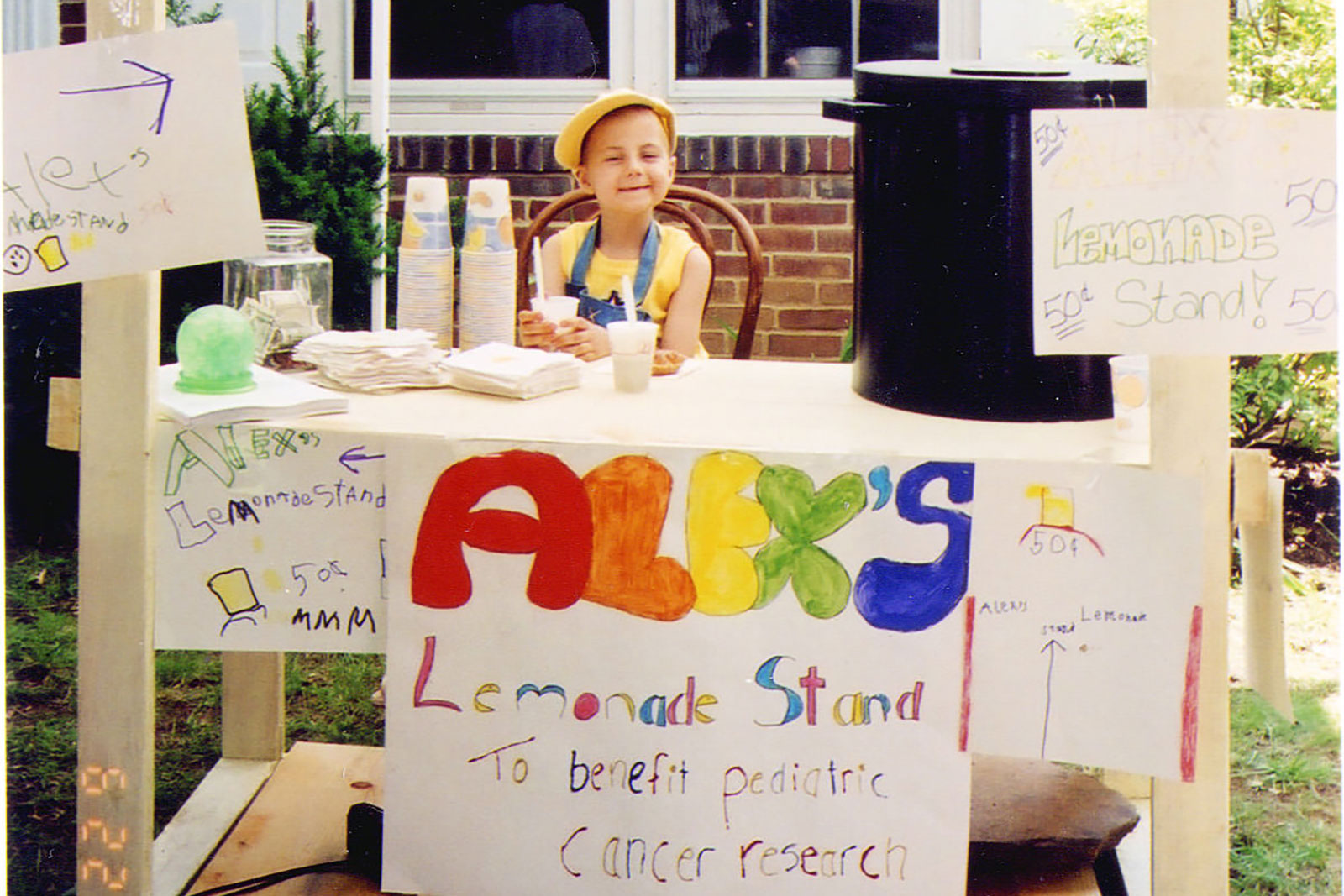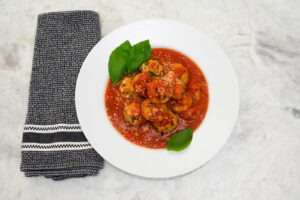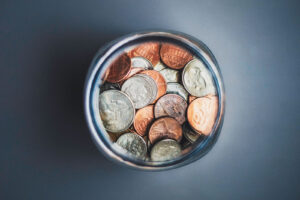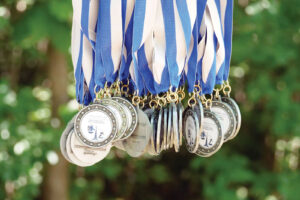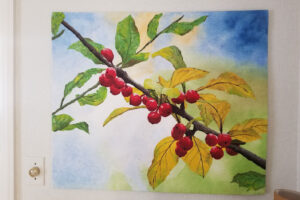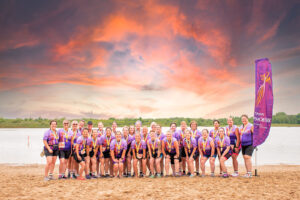Alexandra “Alex” Scott was less than one year old when she was diagnosed with neuroblastoma. She would spend her entire life fighting her cancer, until her death in 2004 at just eight years old. Alex inspired a legacy of tens of thousands of volunteers to raise money for childhood cancer research through Alex’s Lemonade Stand Foundation (ALSF), a nonprofit that has funded nearly 1,000 cutting-edge research projects at 135 institutions in the U.S. and Canada.
But let’s rewind. Before Alex’s fourth birthday, she received an experimental treatment called MIBG therapy. Although it didn’t cure her cancer, it extended her life by four years. “It sort of changed her life,” begins Jay Scott, Alex’s father and co-executive director of ALSF. “She was considered dying by three hospitals, she was on morphine 24 hours a day, [but] when she got this treatment, she came out of the hospital three days later, telling us that the treatment worked and that she was off pain medicine.”
Alex wanted others like her to experience similar success. Like many kids, Alex set up a lemonade stand in her front yard—but she had a mission. Through her lemonade stand, Alex wanted to raise money to help fund research for experimental treatments that would help others facing childhood cancer. “She raised a million dollars before she died,” Scott says. “We thought that would be the end of the lemonade stand, but the outpouring [of support] from people, especially childhood cancer families, was even greater after she died than when she was alive.”
Fast-forward to today, and ALSF raises around $25 million each year for childhood cancer research and ALSF’s support programs, with $3 million of that coming directly from children and families raising money through hosting their own lemonade stands.
With these funds, ALSF provides support programs for families dealing with childhood cancer. The “Travel for Care” program, for example, provides financial assistance for families who must travel to hospitals to receive experimental treatments only offered by a few places around the country.
ALSF raises around $25 million each year for childhood cancer research and ALSF’s support programs, with $3 million of that coming directly from children and families raising money through hosting their own lemonade stands.
Another of ALSF’s programs supports an often underserved population. “SuperSibs” provides tools to help siblings of childhood cancer fighters during and after cancer treatment. “Studies show that if a child survives their cancer, psychologically the siblings fare worse than the survivor,” Scott says. According to Scott, oftentimes siblings don’t understand why their brother or sister is getting so much attention from their parents, who must devote extra time and energy to the cancer fighter. “[SuperSibs] tries to empower [and] make the sibling feel important and in control.”
ALSF uses this future-minded approach to raise money to fund research for immunotherapy, says Scott, and finding more targeted treatments without side effects. “Chemotherapy is devastating to kids; their bodies are growing, […] they get brain damage, they get kidney damage, liver damage, heart damage from the chemotherapy, and we’re trying to avoid that with immunotherapy,” says Scott. “We’re looking for treatments that can cure kids but also not give them lifelong side effects like most survivors have.”
And their success is due to an incredible volunteer force. “That’s the strength in our army, [the] tens of thousands of volunteers,” Scott says. For ALSF, it’s all about saving families from the fear of a childhood cancer diagnosis. “We give them a way to fight back, give them a way to feel empowered, we give them hope,” says Scott.

